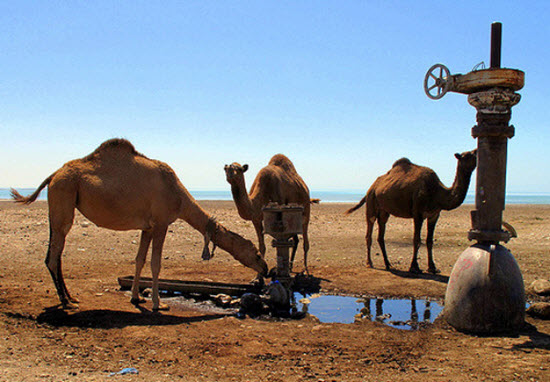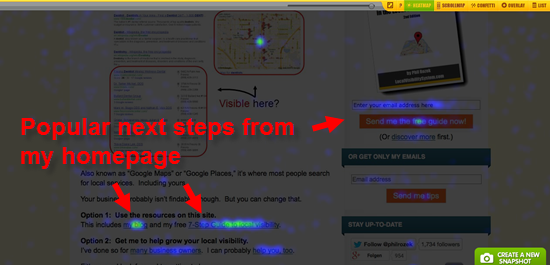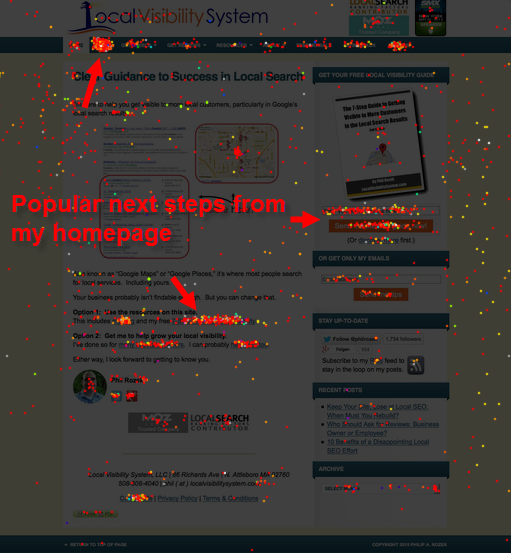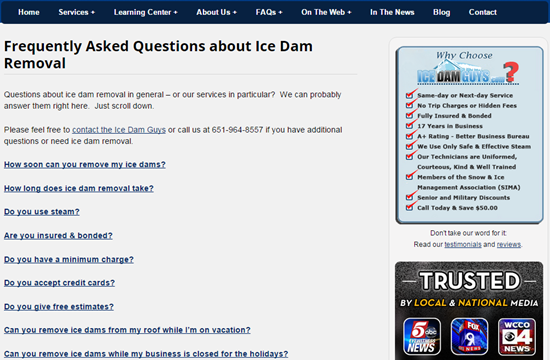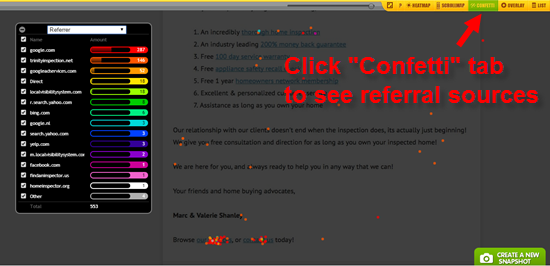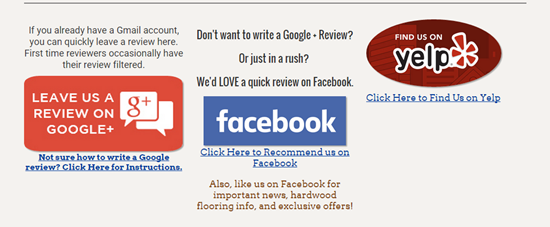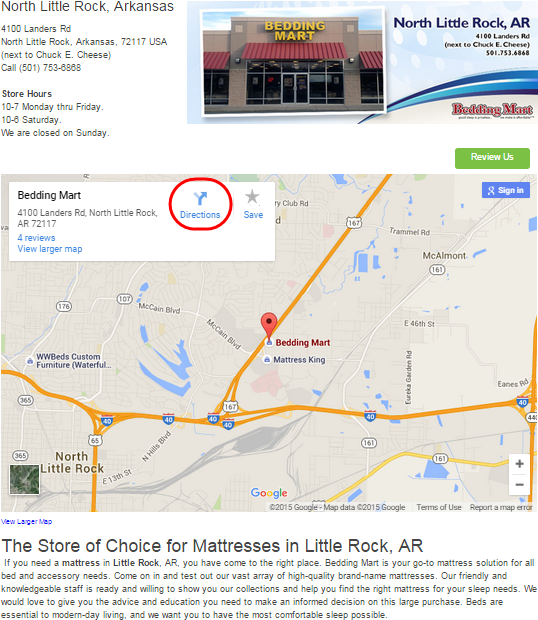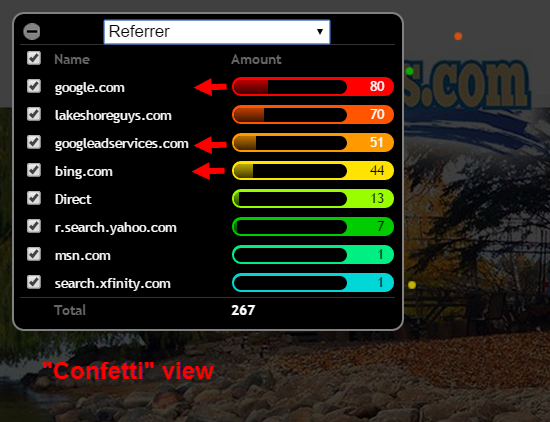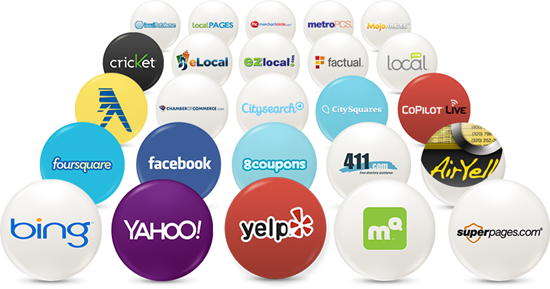You’ve noticed or heard that “near me” searches are super-popular, and that you should try to rank for those terms in Google Maps and in the rest of the local search results.
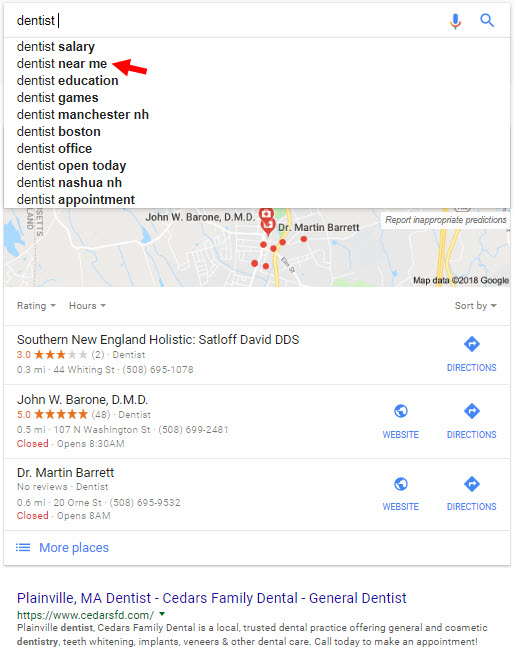
Only two burrs in your saddle:
- How?
- What happens if and when all your competitors jump on the “near me” bandwagon by doing the dumb-n’-easy on-page optimization?
There’s advice out there like, “Just put ‘near me’ into your title tags and in the anchor text of your links.” That’s a fine start, but what are you supposed to do once all your competitors do the same? How can you become Google’s “near me” golden child before competitors try to ruin it?
I’d be remiss not to mention right away that I haven’t autopsied “near me” searches as much as Andrew Shotland and Dan Leibson have. You’d be remiss not to read their posts on the topic, right before or right after reading this one.
Still, I’ve stuck an arm in the “near me” search results for clients and non-clients, and have a few suggestions for you. Some tips on how to do effective “near me” local SEO – that still works for you even after your competitors attempt to muscle in:
1. Understand that the “me” part of “near me” is a specific place, and not just another keyword to target. The results Google shows to people who search “near” them can differ as they walk down the street.
Exactly where “near me” is changes from day to day or minute to minute, because the results that Google and other search engines (or apps) are based largely on knowing exactly where the searcher is. That’s one reason you might optimize the stuffing out of your page or site for “near me” terms and still be outranked by a competitor who just happens to be nearer to the searcher when he/she is searching. The reverse also is true: just because you’re the closest to the searcher doesn’t mean you’ll dominate “near me” search results.”
Location/proximity matters, but is one factor of many. Your job is to make it clear to Google and to searchers exactly where you are, and exactly what you do.
2. Don’t necessarily use “near me” verbatim. It’s natural for a customer to use that phrasing, but it sounds weird if you say “near me” in the first-person voice on your site. Use “nearby” “near you” or “near [city/place]” or “in [city/place]” when doing so makes for a less-clunky read. Google will get the idea, and you won’t confuse people.
3. Don’t just target your highest-priority search term + “near me.” Try to be more specific. You want to give people more reasons to pick you – reasons other than that you’re nearby. What if your competitors are also near the searcher? If appropriate, work into your title tag / H1 / body / URL / page name an often-searched-for variation, like one of these:
“24/7 [service] near me”
“emergency [service] near me”
“cheap [service] near me”
“best [service] near me”
“find [service] near me”
“buy [product] near [city]”
4. Latch onto the local directories that target and rank well for “near me” terms. Usually the best way to do that is to pile up reviews on those sites, but there are other ways to practice “barnacle” SEO.
Take note of local directories that explicitly go after “near me” terms.
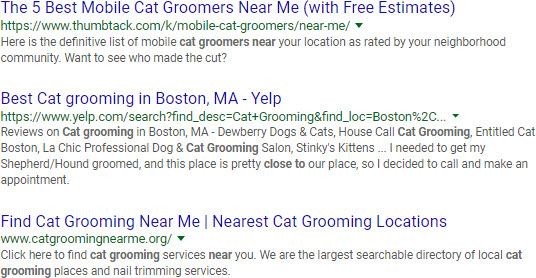
Some illustrative links:
homeadvisor.com/near-me/
thumbtack.com/near-me/
yelp.com/nearme/hvac
5. Say what landmarks or town lines you’re near, or which neighborhood you’re in, or which cities you serve – on your “location” or “city” or “state” pages and maybe even on your homepage. Describe your business’s location as though you were giving a first-time customer directions over the phone. If possible, also throw in an exterior photo or two.
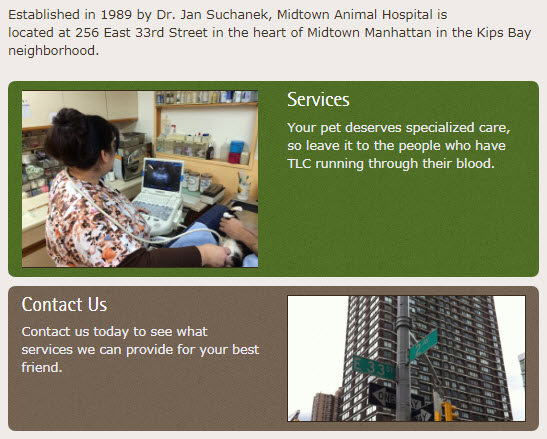
Mention the specific cities or towns or neighborhoods customers come from.

If you’ve got a service-area business, you probably shouldn’t barf up a list of 75 cities. Maybe mention the top 10 or 20 by name.
If possible, add other relevant “local” content that helps would-be customers.
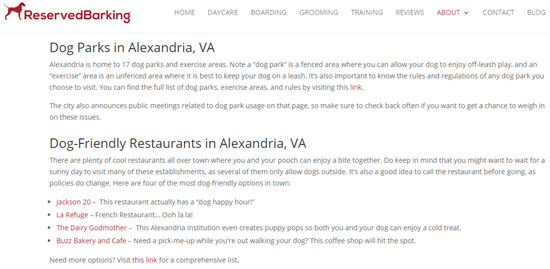
6. Flesh out your “Location Finder” or “Service Area” page. Try to do it in the way I described in my last point, but make sure it’s also got at least a few detailed blurbs on your services and a list of the specific services you offer. Just having a lot of “location” information isn’t enough: On top of knowing where you are and where you serve customers, Google needs to know exactly what you offer at those places. Petco does a good job of that.
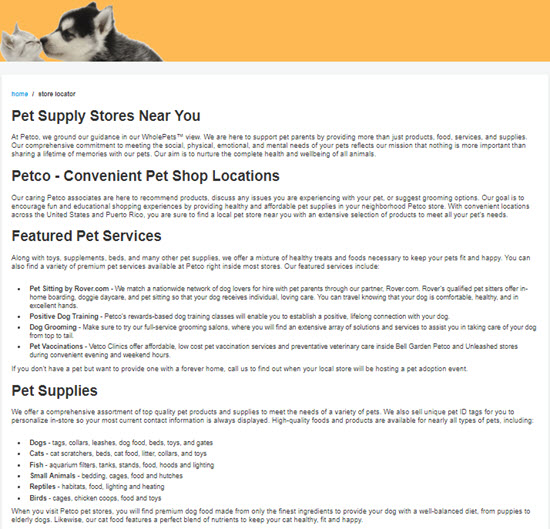
7. Provide old-school driving directions. From the biggest city to your north, and from the biggest city to your south, and so on. Both Google and people like those crunchy bits.
8. Assume that searchers’ behavior – both in the search results and on your site – matters even more than usual. One of the main reasons “near me” searches have exploded in the first place is that Google’s become frighteningly good at learning about searchers and their habits, especially on mobile. In my experience, if nobody clicks on your search result, Google will hold that against you. If people click through to your site but don’t like what they see and hit the “back” button, that’ll drag down your rankings sooner or later. Make your pages stickier by working on your copy.
9. Stop shooting for the “whale” links and first try to nab more links from sites relevant to your area.
A link from the New York Times or the Smithsonian is great, but not if you ignore simpler link opps that can help you in the meantime. Those link opps include joining a local Chamber of Commerce, joining a couple state- or city-specific professional organizations, and helping out local causes in whatever way you can.
10. Turn “Portfolio” or “Our Work” pages or posts or photos into “[type of job] near [place]” bits of content. This is most obviously applicable to you if you’re a contractor, but you can get creative if you’re in another field. You could do a page or post on “Remodeled Kitchen Near Kenmore Square” or “33-Year-Old Roof Replaced Near Venice Beach.” Or you could do “April 3, 2018 Estate Sale Near Bronx Zoo” or “Walking Dachshunds Near Downtown Dallas.” This is a twist on my recommended approach to “city” pages.
11. Don’t change your local SEO strategy too much just to grab more “near me” visibility. It’s probably not the game-changer some say it is. Sure, those searches are popular, and it’s important to get a piece of the action now, but it’s only a matter of time before the “near me” watering hole gets too crowded.
People who type in “near me” want the same things as those who don’t. For you the mission is still the same: make it clear (on and off your site, to Google and to people) exactly what you do, exactly where you are, and exactly what makes you good at it.
—
What’s a “near me” visibility strategy you’ve used?
How about one you’ve seen work well?
Leave a comment!
